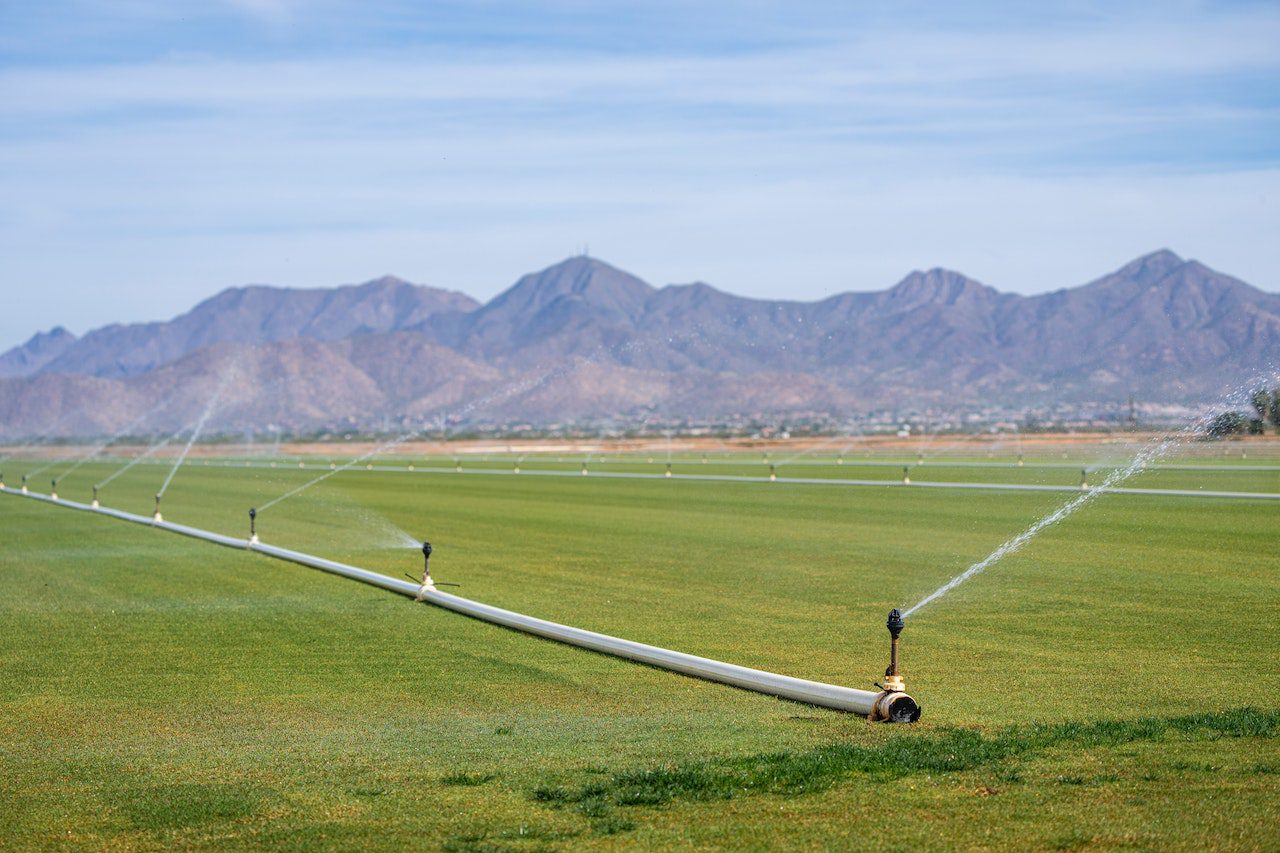Preventing Sprinkler System Freeze Damage: Essential Steps

As winter approaches, ensuring the safety of your sprinkler system becomes a pressing concern. The potential damage to pipes caused by freezing temperatures is a genuine worry. This comprehensive guide will walk you through simple steps to shield your system from extreme cold. Learn how to shut off the water supply, disconnect the booster pump and prevent freezing in your irrigation setup. We’ll also delve into the consequences of neglecting these precautions. Following these straightforward instructions, you can protect your pipes for irrigation and prevent costly damage. So, let’s dive into safeguarding your irrigation system when the mercury drops.
Making Your System Safe
When the temperature dips, shut off your irrigation system’s water supply as a first and foremost step. The water within the irrigation pipes can freeze, leading to cracks, breaks and other damage. Understanding disconnecting your water supply is crucial to avoid any winter-related disasters.
- Locate the Main Valve: Find the main valve that controls the water flow to your sprinkler system.
- Turn Off the Valve: Rotate the valve clockwise to completely shut off the water supply.
Remember, properly shutting off the water supply is vital to preventing any harm to the irrigation pipes. A small trickle of water left flowing might lead to a significant problem later.
Unplugging for Pump Safety
The next essential step is to ensure the safety of the booster pump connected to the pipes for irrigation.
- Locate the Pump’s Power Source: Find the power source for the booster pump and unplug it.
- Secure the Plug: Ensure the plug is dry and safe to prevent electrical accidents. Unplugging the booster pump is crucial in ensuring that the irrigation pipes do not suffer any electrical malfunctions during the cold months.
Running the Sprinklers One Last Time
Running the system after shutting off the water supply and unplugging the pump helps clear any residual water in the sprinkler pipes for irrigation.
- Activate the System: Turn on the sprinkler system, allowing it to run for a few minutes.
- Observe the Flow: Check to ensure that the system doesn’t retain any water, as this water could freeze later on.
This procedure ensures that the irrigation pipes are free of any water that might freeze and cause damage during winter.
What Happens When It Freezes? The Consequences of Ignoring Winterization
Ignoring the essential winterization steps can lead to severe consequences for your irrigation pipes. If the system freezes, the following may occur:
- Cracks and Breaks: The expansion of frozen water can cause the pipes to crack or even break.
- Malfunctioning Sprinklers: The sprinklers may get stuck or stop working altogether.
- Costly Repairs: Fixing a frozen system can be expensive and time-consuming.
Insulation and Other Techniques
Winterizing your sprinkler system is not just about turning off the water and unplugging the pump. It also involves protecting the irrigation pipes by insulating them and employing other preventative measures.
- Use Insulation Wraps: Wrap the exposed pipes with specially designed insulation materials. That helps prevent the cold air from directly contacting the pipes, reducing the chances of freezing.
- Install Protective Covers:Consider placing protective covers over the valve boxes to add extra defense against the cold.
- Professional Inspection: Before the winter sets in, have a professional inspect the system to identify any weaknesses that could lead to freezing.
These extra precautions ensure your irrigation pipes stay protected, even in the coldest conditions.
Early Detection of Freeze Damage of Pipes for Irrigation
Early detection can save you from costly repairs and prolonged downtime caused by detecting freeze damage. Here’s how to recognize if your sprinkler system has suffered freeze damage:
- Visual Inspection: Regularly check the pipes for any visible cracks or breaks. If you notice something amiss, it might indicate freeze damage.
- Monitor Water Flow: If the sprinklers fail to disperse water properly or exhibit low pressure, it could indicate that ice is obstructing the irrigation pipes.
- Listen for Unusual Noises: Any unusual noise, like a hissing sound, may suggest that air is escaping through a pipe crack.
- Act Quickly: If you detect any of these signs, turn off the system immediately and seek professional assistance to prevent further damage.
Early detection of freeze damage to your pipes for irrigation can save you time and money, ensuring that minor issues do not escalate into major problems.
Discover the Ultimate Winter Defense for Your Irrigation System
Upgrade your irrigation system with Bison Pipe – your trusted partner for top-notch pipes that ensure efficient water distribution. Our premium selection of pipes for irrigation guarantees durability and optimal performance, no matter the weather. Say goodbye to worries of freezing temperatures damaging your system. Choose us for reliable solutions that stand the test of time.

